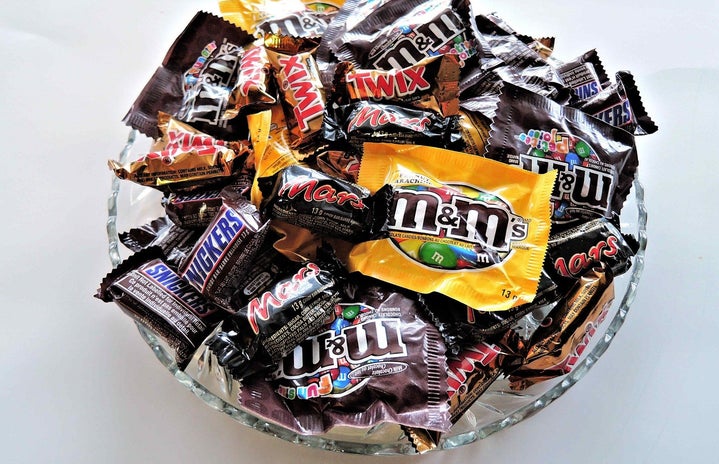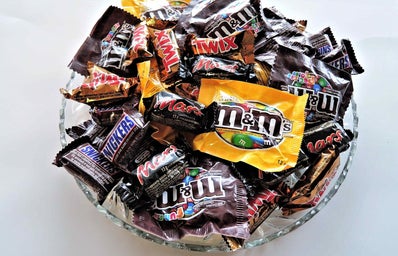When people hear “February”, a lot of people instantly think about Valentine’s Day. With only 4 days to V-day, you might be rushing to make or buy chocolates, chocolate-flavored snacks, or other baked goods to give to your friends, family, or significant other. Are you a chocolate lover, or not a big fan of chocolate? Personally, I usually eat chocolate almost every day, and my favorite is dark chocolate. Some might say that I am a chocolate connoisseur since I find joy in trying out different brands of chocolate.
Ever since I was little, I have always liked chocolate, but some of my friends were not too keen on it. They said they would rather eat gummies, which I am not a big fan of. This got me thinking, why is it that eating chocolate makes me so happy? Is it a type of superfood or junk food, and are there actually nutritional benefits to this sweet delicacy? I grew up always being curious about nutritional health, and so while I may not end up being a nutritionist, I thought I can research on my own.
- 1What are the different types of chocolate made of?
-
Chocolate is made from roasted and ground cacao pods, and is available in liquid, solid, and paste form, on its own as a sweet treat, or as a flavoring agent in other foods (e.g. ice cream, cookies, etc.). Cacao beans are fermented to develop flavor and are then dried, cleaned, and roasted. Cacao nibs are ground to make cocoa mass, which is then heated to make chocolate liquor. This liquor makes cocoa solids and cocoa butter.
Chocolate liquor is blended with cocoa butter in varying quantities to make different types of chocolate or couverture (very high-quality chocolate that contains a higher percentage of cocoa butter (32–39%) than baking or eating chocolate).
- Dark chocolate is made of some sugar, cocoa butter, cocoa liquor, and (sometimes) vanilla.
- Milk chocolate is made of sugar, cocoa butter, cocoa liquor, milk or milk powder, and vanilla. Some manufacturers include condensed milk.
- White chocolate is made of sugar, cocoa butter, milk or milk powder, and vanilla. It does not include cocoa solids.
As the ingredients list shows, dark chocolate is slightly healthier than milk or white chocolate, since it contains less sugar and no milk.
- Nutritional Facts About Chocolate
-
Why do we crave chocolate, and what is our body trying to tell us? What are the health benefits and health dangers of chocolate?
Pros:
100 grams of milk chocolate is said to be an excellent source of vitamin B12 and dietary minerals, manganese, phosphorus, and zinc. Also chocolate is a good source of calcium, magnesium, and iron.
According to Meiji Chocolate (Japan’s most famous chocolate and snacks manufacturer), dark chocolate is packed with polyphenol, which is difficult to obtain whole from other plant-based foods like apples, red wine, and coffee (Meiji). For example, while an apple has 220mg of polyphenol per 100g, dark chocolate contains 840 mg of polyphenol for every 100g. Research shows that polyphenols are a category of chemicals that naturally occur in plants, and there are more than 500 types (Ware, Medical News Today).
Health Benefits of cacao polyphenol:
- Lowers blood pressure: Blood pressure rises when blood vessels become clogged and thin, but taking cocoa polyphenol is expected to widen blood vessels.
- Prevention of atherosclerosis: With its strong high-oxidation power, it is expected to suppress the oxidation of cholesterol.
- Beauty benefits: prevents problems caused by active oxygen, which is one of the causes of skin aging.
- Improvement of allergies: inhibits the action of various factors that produce active oxygen species.
- Brain activation: May enhance cognitive function by working on “BDNF”, which is considered to be the brain’s nutrition.
- Improves bowel movement: Cacao protein is difficult to digest (indigestible) and is expected to improve bowel movement (as it leads to increased stool volume).
The flavonoids (a subcategory of polyphenols) inside chocolate trigger a signal in the brain to release endorphins, the “feel-good” hormone – the same chemical released after physical exercise (Petrov, Washington Post). I guess that is why some people (myself included) crave chocolate to feel happy.
However, research states that you would need to consume a lot of chocolate in order to get a decent amount of this “feel-good” hormone. Does this mean that there is some level of a placebo effect, in that we feel happy just by the action of eating chocolate, which is socially constructed as being a sweet treat? I partially agree with this, but I suppose more research on this is needed.
Cons:
So far we have seen evidence showing that chocolate is good for us, but what about the negative effects? I think the danger of chocolate lies in the chocolate-covered candy bars and snacks that are sold in stores. Chocolate candy bars and other chocolate-covered snacks usually contain a lot of sugar, sweeteners, margarine, and shortening. In terms of sugar content, a regular-sized snicker bar contains 27 grams of sugar – the equivalent of 7 teaspoons of sugar. In addition, many snacks sold in stores contain shortening or margarine, which are types of trans fats. Trans fats are fats that have been changed by hydrogenation in order to increase the shelflife of the fat and make it harden at room temperature (University of Michigan Health). Trans fats raise your cholesterol and therefore increase your chances of getting heart disease. So, it is best to avoid candy bars, cookies, chips, and baked goods that contain trans fats, even if they are covered in chocolate and look delicious.
- The Verdict
-
So, is chocolate actually good for you?
The answer is yes, but in moderation. First of all, it is wiser to understand that it is a treat, and not necessarily an only-benefits superfood. Consider cacao nibs to be superfoods, and other forms of chocolate as sweets to fulfill your sweet tooth. In addition, if you have a choice between milk, white, or dark chocolate, try choosing dark chocolate as it has a higher cacao percentage, less sugar, and less milk than the other two types. Understand that all food has nutritional value and that affects our health, either negatively or positively.
Now, go and enjoy that chocolate treat! After all, it’s Valentine’s season.


